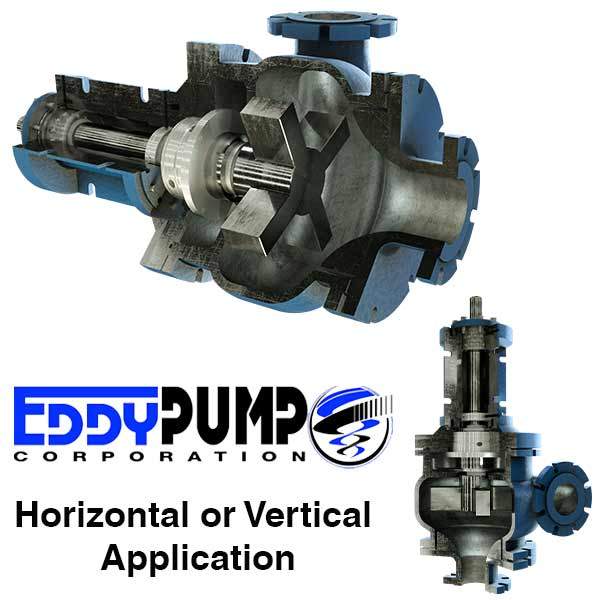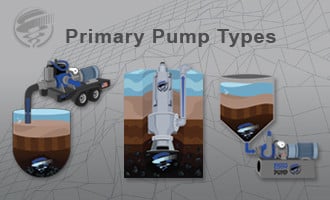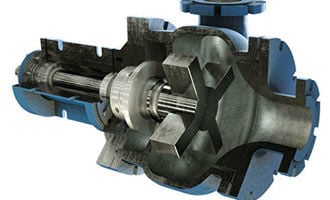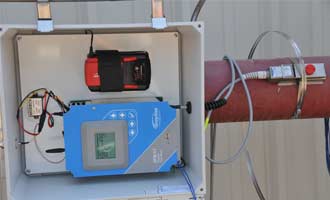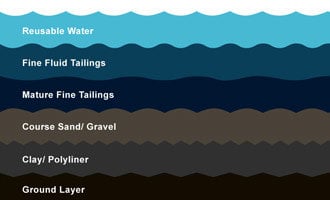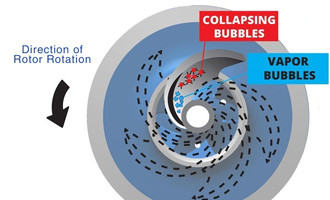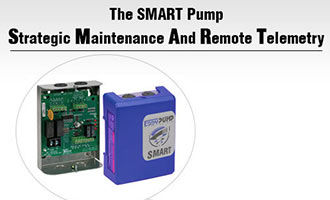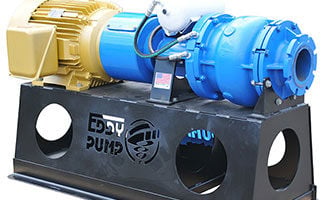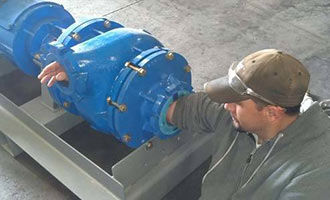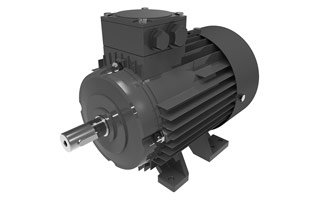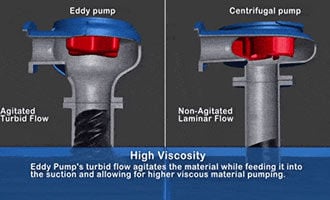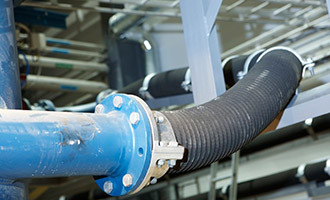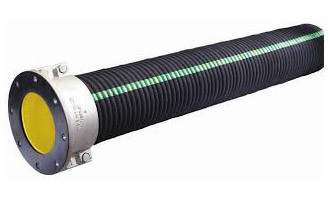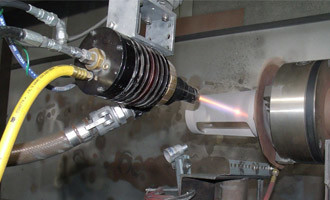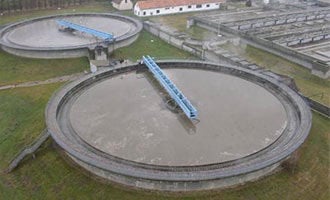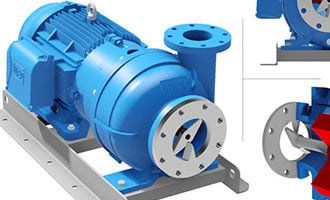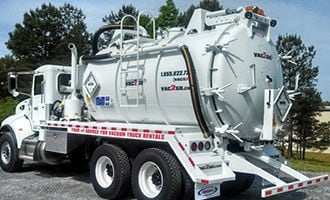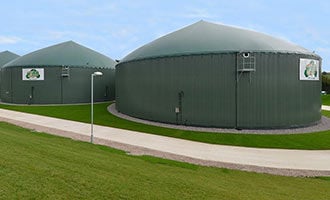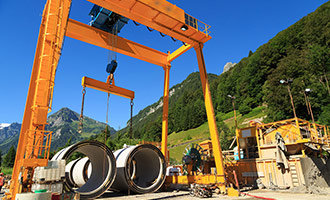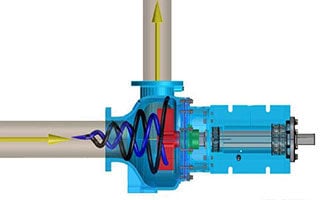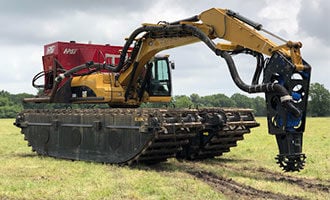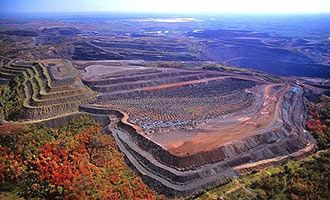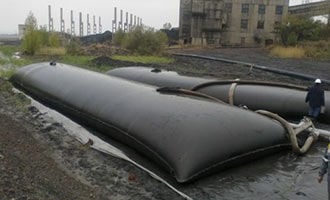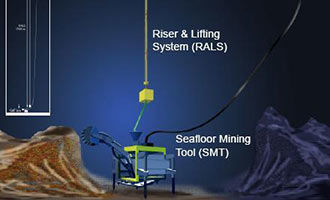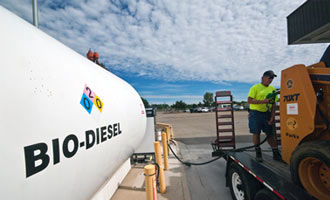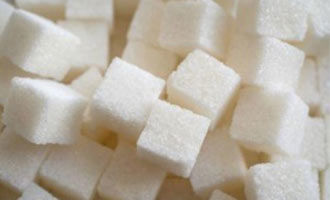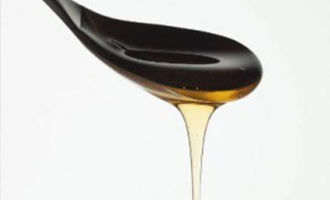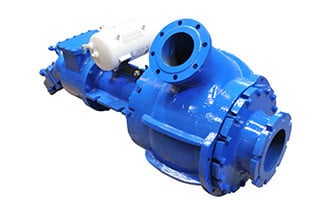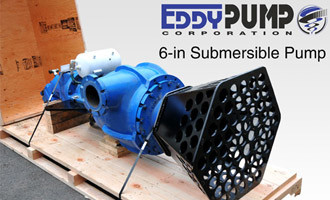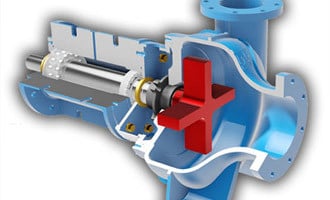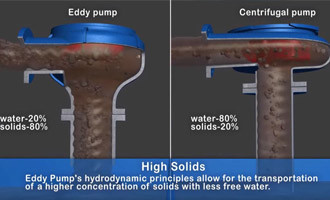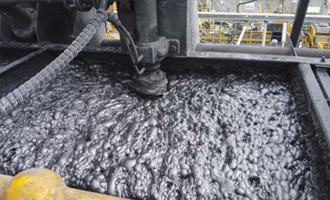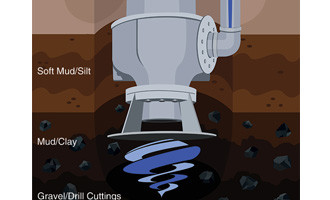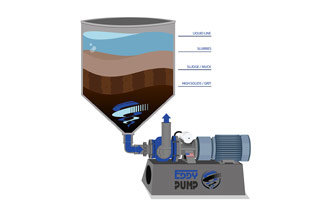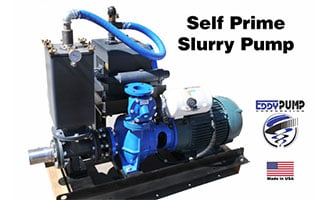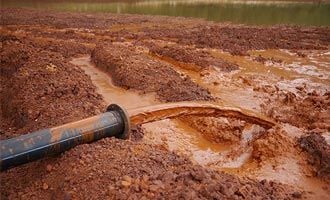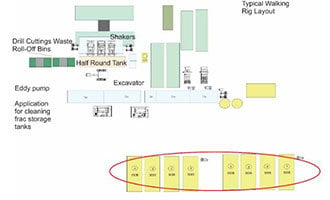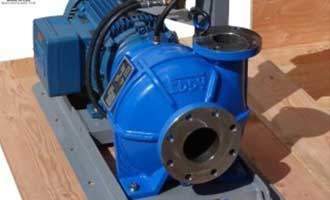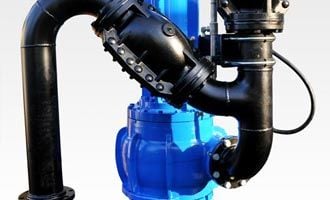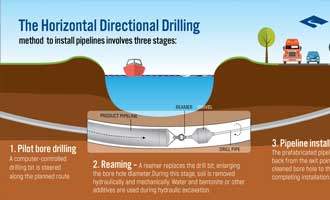How to Choose a Slurry Pump 101
The purpose of this article is to provide an understanding of the important considerations for selecting a slurry pump for your application. There are many factors and considerations to ensuring the pump that your purchase is appropriately suited for your application needs. Proper pump sizing, motor power, performance requirements, slurry characteristics, and discharge head requirements are only a few of the things that must be factored into the slurry pump selection process. Browse Our Slurry PumpsContact Us For a Fast QuoteThis Article Includes
- Slurry Pump Selection Overview
- What is a Slurry Pump
- How to Choose a Slurry Pump
- EDDY Pump’s Premier Heavy-Duty Slurry Pumps
How to Choose a Slurry Pump – Overview Video
What is a Slurry Pump?
There are many different types of pumps available, and most pumps are designed for a specific purpose or type of application. Pumps that are designed to transfer thin fluids are different from pumps that are designed for thick, solid-laden, abrasive, heavy materials. Due to the difference in pump design between different types of pumps, it is very important that the most appropriate pump be selected for your slurry application.
Slurry pumps are designed for pumping thick materials that can consist of such things as slurries, sand, gravel, mud, crushed rock, muck, manure, and many other highly viscous materials. Typically, a slurry is a mixture of a given material such as crushed rock and water. A slurry pump has the ability to move difficult thick material from the material source, into and through the pump, and downstream to its final destination.
Slurry pumps are inherently rugged by the nature of what they do and are capable of pumping high viscous and high specific gravity solid-laden slurries without clogging. The non-clogging aspect of a slurry pump design is one of the most critical differentiating factors compared to other pump types. These pumps perform in some of the harshest environments a pump could be applied to and are used in many industries including dredging, oil & gas, mining, frac sand pumping, and many other industries.
How to Choose a Slurry Pump
The following list of 8 significant considerations is to help you understand your pump application necessities in relation to selecting the best-suited pump for your application. The greater the viscosity, specific gravity, abrasion, and other important fluid and non-fluid characteristics make selecting a pump more difficult because these factors play into the situation at a greater level of importance, making the following application specifics even more critical.
Critical – Know Your Application!
- Type of material will be pumped (sand, sludge, mud, muck, slurry, etc.). Knowing the characteristics of the material is critical for choosing the most suited slurry pump.
- Density of material to be pumped (specific gravity – 2.5 Sg, etc.)
- Viscosity of material to be pumped (1,000 centipoise (CPS), etc.).
- Operating temperature of material.
- The pH level – pH is a measure of hydrogen-ion concentration. An easy way to remember pH is that a pH of 7 is neutral, below 7 acid, and above 7 alkaline. High chrome steel is well suited for pH levels between 4 and 9. Duplex stainless steel is ideally suited for pH levels less than 3 and above 10.
- Flow rate required (example: 500 GPM or 100 cu. yards per hour [cu-yd/h]).
- Discharge Head (example: 100 PSIG).
- The pump chosen must be able to surpass the total discharge head for the application. This helps to reduce the potential abrasion to the pump and discharge pipeline.
- Length of inlet and discharge pipeline (example: 1,000-ft.).
- Diameter of inlet and discharge pipeline (example: 4-in., 10-in., 12-in., etc.).
- Pipeline material of construction (example: steel, polyvinyl chloride, cast iron, etc.).
- Pump elevation in relation to fluid source.
- Flooded suction (pump positioned below fluid source).
- Submersible suction (pump positioned within fluid source).
- Elevated suction (pump positioned above fluid source, the pump must be self-priming).
Match the Best Suited Pump to Your Application Requirements
- Pump size must effectively produce a greater flow rate than the critical flow rate of the pump.
- Critical flow rate is important when pumping slurries with a concentration of solids. The critical flow rate is the flow rate required to keep the material being pumped from settling on the bottom of the volute. Due to this, the actual flow rate should always be higher than the critical flow rate.
- Pump’s material of construction (cast iron, stainless steel, high chrome steel, etc.)
- The chemical compatibility of the pump must be suitable for the material that is to be pumped. Also, choosing a material that withstands abrasion is very important. Replaceable rubber liners are available that can be installed internally to the pump to assist with reducing abrasion to the inside of the metallic volute casing.
- Motor requirements (example: 250 HP).
- The power rating of the motor must be higher than the power consumption required. Flow rate, specific gravity, and discharge head are used to determine power consumption.
- Consider the economic impact to your profits of having a pump that is capable of producing the desired flow volume, but do it for a lot less cost. Usually, pumps that can move viscous materials with a very low amount of water can save a large amount of money over a short period of time due to reducing the accruing water volume used.
The EDDY Pump Corporation
The EDDY Pump Corporation is a leading provider of unique slurry and dredge pumps and manufactures products that provide superior value versus other pump types. The pump is not a centrifugal, vortex, or positive displacement pump, but rather a pump harnessing the fluid dynamics of an eddy current. This enables the EDDY pump to outperform conventional pumps in applications that involve high viscosity, large weight of solids and particulates, high specific gravity, corrosive and abrasive material, work well in applications that are susceptible to clogging, and do it in an environmentally friendly manner.
EDDY Pump Product Categories
- Self Priming Pumps
- Industrial Heavy-Duty Slurry Pumps
- Dredging Equipment
- Excavator Pump Attachment
- Dredge Sled
- Autonomous Dredge
- Cable Deployed Dredge
- Hydraulic Power Units (HPU)
If you are pumping slurry, brines, high solids, extremely viscous material, paste, high abrasives (sand & gravel), and material filled with solids, then you found the best-suited pump for the job. Go to: https://eddypump.com/ or Call Us!
Pump Orientation Options
When choosing a slurry pump for an application, there are two categories of slurry pumps based on product orientation; vertical pump and horizontal pumps. Vertical or horizontal refers to the shaft orientation. Both pump orientations have their advantages and disadvantages. Vertical pumps help to reduce the space required for pump location and can be maneuvered into smaller spaces, whereas horizontal pumps are the most common pump orientation.
EDDY Pump’s Premier Heavy-Duty Slurry Pumps
The EDDY Pump is considered one of the premier self-priming high viscosity and high specific gravity pumps in the world and has been designed specifically for demanding applications that require the transfer of thick, abrasive, heavy solid laden materials. The non-clogging design of the pump includes an enlarged wetted path and recessed rotor. This allows the pump to move large volumes of viscous material through the pump without clogging and causing downtime to your application.
Premier Pump Design
The unique design of the recessed rotor creates an Eddy Current as it spins inside the volute. This method of displacing fluid via the uniquely designed recessed rotor creates a vortex (a circular current of fluid) at the pump inlet that assists with drawing the material to be pumped into the volute, exiting the pump discharge, and pumping the material downstream of the pump to the desired location. The Eddy Current also keeps particles and solids maintained in suspension which is critical when pumping high viscous, solid-laden material. The EDDY Pump’s ability to pump concentrated solid matter is perfect for moving viscous materials with as much as 40-70% solids by volume; an impossible task for a lot of traditional pump types. The EDDY Pump can also pass extremely large solids that are almost the size of the liquid inlet and liquid discharge of the pump; these results are beyond the scope of what most other traditional pumps can achieve.
Low Cost of Ownership
An important factor when choosing the best pump for your application goes beyond whether or not the pump can meet the application requirements; there is also the subject of Cost of Ownership and how much it costs you to operate your pump over the course of the pump’s lifetime. Due to the EDDY Pump’s ability to pump high viscous and high specific gravity materials with the volume of very high solid and extremely low water content, the cost to pump the material is drastically reduced. The accruing cost of water that goes along with using pumps that require a high water content to move viscous materials dig very deep into your profits.
Materials of Construction
The EDDY Pump is made of the highest quality materials and is extremely rugged, abrasion resistant, chemically compatible with most fluids, and capable of withstanding a great deal of punishment that is typically inherent in abrasive, high viscosity, and high specific gravity, slurry applications. For more information on the EDDY Heavy-Duty High Viscosity and High Specific Gravity pump go to https://eddypump.com/ or give us a call today!
Related Products
HD (Heavy Duty) Slurry Pumps
EDDY Pump vs. Centrifugal Pumps
How EDDY Dredge Pumps Work Vs. Centrifugal pumps. EDDY Pump technology explained. Learn more about EDDY Pump Technology.
Why EDDY Pumps Are Better - Highlights
This video shows how EDDY Pump transports high slurry and abrasive materials. Featured dredge pump equipment includes the Remote Operated Subdredge, Diver Operated Pump and a Excavator Attachment Dredge Pump.





